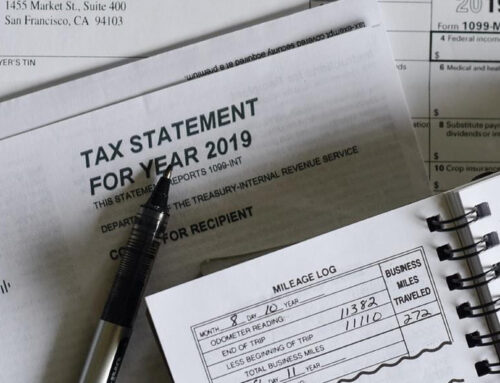INCOME TAX
7 Ways to Lower Your Tax Liabilities
with the Help of a Financial Planner
Schedule a Complimentary Financial Review
Along with big life changes, adjustments to the tax code can affect the best-laid financial plans. Making timely adjustments to your tax strategies under the guidance of your financial planner can help ensure you’re maximizing returns and minimizing the tax liabilities that will cost you more in the long run. While taking advantage of the income tax planning services provided by Park Place Financial, consider these seven tips designed to boost your bottom line.
1. Give Back Through Charitable Donations
Donating is not just a generous way to give back to those in need throughout your community. It can also help cut back on your tax load. Donating securities to non-profits helps exclude a sizable sum from your gross income (with certain restrictions). You may also take advantage of your right to make Qualified Charitable Distributions to an organization eligible to receive tax-deductible contributions from an IRA. Distributions may begin at age 70 1/2 and exclude up to $100,000 from your gross income (with some restrictions).
2. Make Estate Planning Part of Your Financial Plan
Reducing your tax liabilities can also help provide for your family in the future. Leave your loved ones with as much as possible through strategic estate planning. Depending on where you live, the “death tax” owed after your passing might be high. However, creating a comprehensive plan for your estate can help reduce the amount of money that goes to the government instead of your heirs. Your financial planner may suggest measures like:
- Spending or gifting assets during your lifetime
- Creating a trust to reduce taxes assessed against the estate
- Taking advantage of benefits for married couples
3. Take Care of Medical Expenses Up Front
Pre-paying for out-of-pocket healthcare expenses can help keep more money with you and less spent on taxes. Medical expenses range from unexpected surgeries to planned monthly prescriptions. While it may take some saving ahead of time, pre-paying for medical-related expenses can save you in the long run. According to the IRS, a wide range of payments applies, including:
- Fees to doctors, dentists, chiropractors, psychologists, and other healthcare providers
- Select Medicare plans
- Inpatient hospital and nursing home care
- Insulin and other prescription drugs
- Dentures, prescription eyeglasses, and hearing aids
- Insurance premiums for policies that cover medical care and qualified long-term care
- Some relevant home modifications
By pre-paying out-of-pocket medical expenses, you can rise above the standard deduction amount and meet the 7.5% AGI threshold. Plus, some providers offer a discount for your forethought.
4. Tap into Your Dividends
Swap your salary for dividends as a business owner. Earning dividends instead of a salary can help you save more over time. Corporate dividends are paid from after-tax business income and are typically taxed at a lower rate than hourly wages and salaries. Prioritizing dividends over wages can help you avoid some tax liability where applicable.
5. Use a Roth Conversion to Lower Taxable Income in Retirement
Converting a traditional IRA into a Roth IRA can be part of a successful financial strategy. This allows you to turn tax-deferred assets into tax-free assets and pay taxes on the conversion in an optimal tax year. It’s a smart way to permanently lower your taxable income in retirement, especially in the event any of the following considerations apply:
- A higher tax bracket is in your future
- You’re relocating to a state with higher income taxes
- Other deductions and losses can offset the conversion tax
- The value of your IRA investments is at a low
- You won’t need to take distributions by age 72
6. Review Your Investment Fees
Staying abreast of tax code changes should be a critical part of your financial plan and money-saving strategies. While you may have been able to write off select fees on investment management before the TCJA (Tax Cuts and Jobs Act), you’ll now have to find other ways to pay those fees with pre-tax dollars. This can be done by potentially maximizing the after-tax return on investments, not just the market return.
7. Optimize Retirement Contributions
Reviewing your retirement planning strategy in light of current tax changes can also help you save and grow your investment. Your financial picture may vary depending on whether retirement is right around the corner or a little farther down the road. By splitting contributions between retirement accounts or diverting contributions elsewhere to reduce debt, such as mortgage interest, running the numbers every so often with your financial planner can work in your favor.
Connect with a Financial Planner Today
Take advantage of the income tax planning services at Park Place Financial in Bellaire, Texas. Request a complimentary financial checkup from one of our financial planners and contact us for more information about the targeted tax strategies that may work in your favor.



